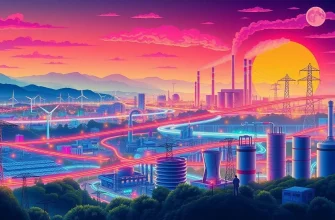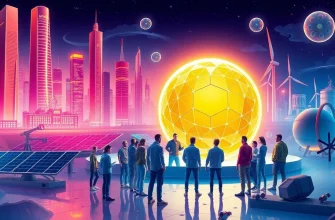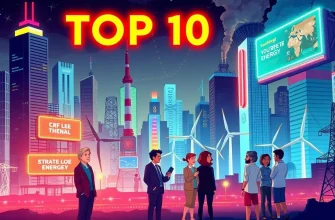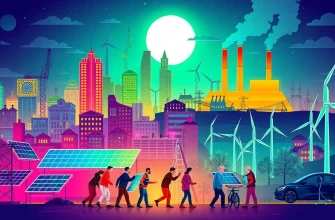- Who Killed the Electric Car? (2006)
- The Age of Stupid (2009)
- The Island President (2011)
- The Power of Community: How Cuba Survived Peak Oil (2006)
- Windfall (2010)
- Switch (2012)
- Planet Solar (2013)
- The Great Energy Challenge (2013)
- Power to Change: The Energy Rebellion (2016)
- Tipping Point: The Age of the Oil Sands (2011)
In an era where energy consumption is at an all-time high, understanding the quest for energy independence becomes crucial. This curated list of documentaries sheds light on the innovative approaches, challenges, and triumphs in the journey towards sustainable energy. From solar power to wind farms, these films not only educate but also inspire viewers to think about their own energy footprint and the future of our planet.
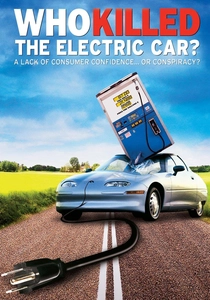
Who Killed the Electric Car? (2006)
Description: Investigates the birth and death of the electric car, exploring the political and economic forces that hindered its widespread adoption.
Fact: The film led to a resurgence in interest in electric vehicles, influencing public policy and consumer demand.
 Watch Now
Watch Now
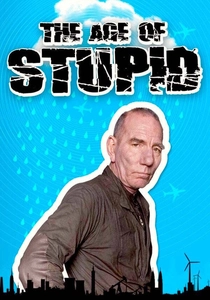
The Age of Stupid (2009)
Description: Set in a post-apocalyptic future, this film looks back at the early 21st century to understand why humanity failed to address climate change and energy issues.
Fact: The film features a mix of documentary footage and fictional narrative, making it a unique blend of genres.
 Watch Now
Watch Now
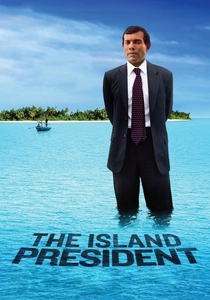
The Island President (2011)
Description: Follows the President of the Maldives as he campaigns for global action on climate change, highlighting the vulnerability of island nations to rising sea levels.
Fact: The film was nominated for an Emmy Award for Outstanding Nature Programming.
 30 Days Free
30 Days Free

The Power of Community: How Cuba Survived Peak Oil (2006)
Description: This film explores how Cuba managed to survive an energy crisis by embracing local, sustainable agriculture and community-based solutions, offering a blueprint for energy independence.
Fact: The film was screened at the Sundance Film Festival and has become a staple in discussions about sustainable living.
 30 Days Free
30 Days Free

Windfall (2010)
Description: A look at the impact of wind farms on a small town in New York, highlighting the economic benefits and the social and environmental costs of renewable energy projects.
Fact: The film was directed by Laura Israel, who initially set out to make a film about the positive aspects of wind energy but found a more complex story.
 30 Days Free
30 Days Free

Switch (2012)
Description: This documentary travels the world to explore different energy sources, offering a balanced view on the transition from fossil fuels to renewable energy.
Fact: The film was used as an educational tool in many universities to teach about energy policy and sustainability.
 30 Days Free
30 Days Free

Planet Solar (2013)
Description: Follows the journey of the world's largest solar-powered boat, showcasing the potential of solar energy in maritime transport and beyond.
Fact: The boat, MS Tûranor PlanetSolar, completed a circumnavigation of the globe powered solely by solar energy.
 30 Days Free
30 Days Free

The Great Energy Challenge (2013)
Description: An interactive documentary series that explores the future of energy, engaging viewers in a challenge to find sustainable solutions.
Fact: It was produced by National Geographic and uses interactive elements to educate viewers on energy choices.
 30 Days Free
30 Days Free

Power to Change: The Energy Rebellion (2016)
Description: This documentary focuses on grassroots movements and individuals who are pushing for a transition to renewable energy sources.
Fact: The film features stories from around the world, showcasing the global nature of the energy independence movement.
 30 Days Free
30 Days Free

Tipping Point: The Age of the Oil Sands (2011)
Description: Examines the environmental and social impact of Canada's oil sands, questioning the sustainability of this energy source in the context of global energy needs.
Fact: The film was produced by the National Film Board of Canada, known for its thought-provoking documentaries.
 30 Days Free
30 Days Free


